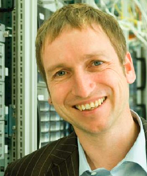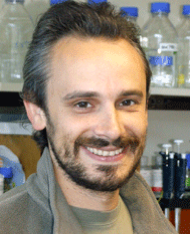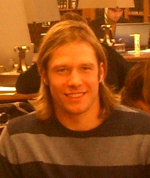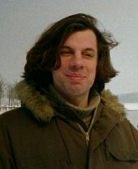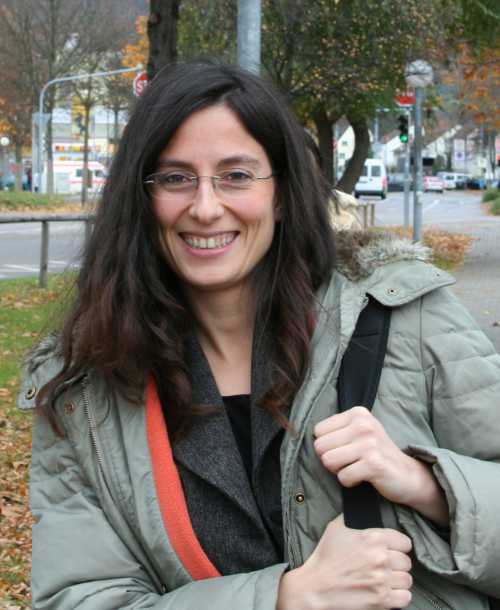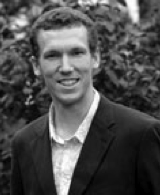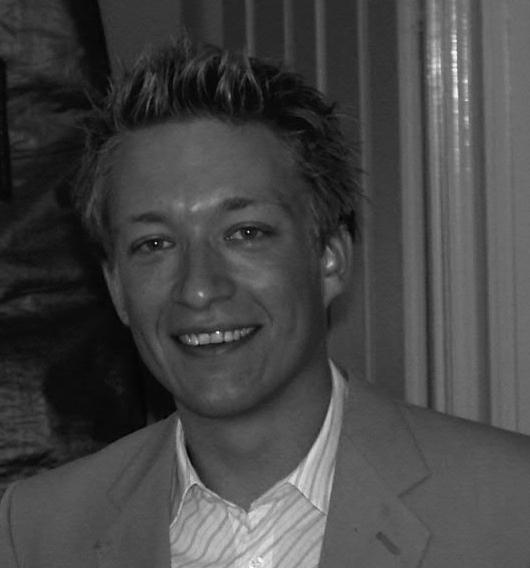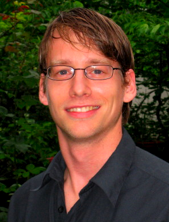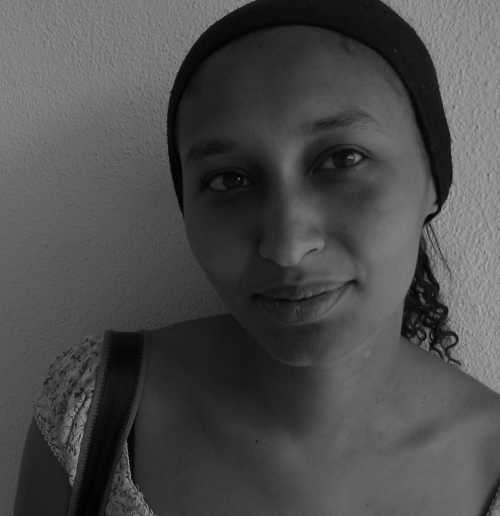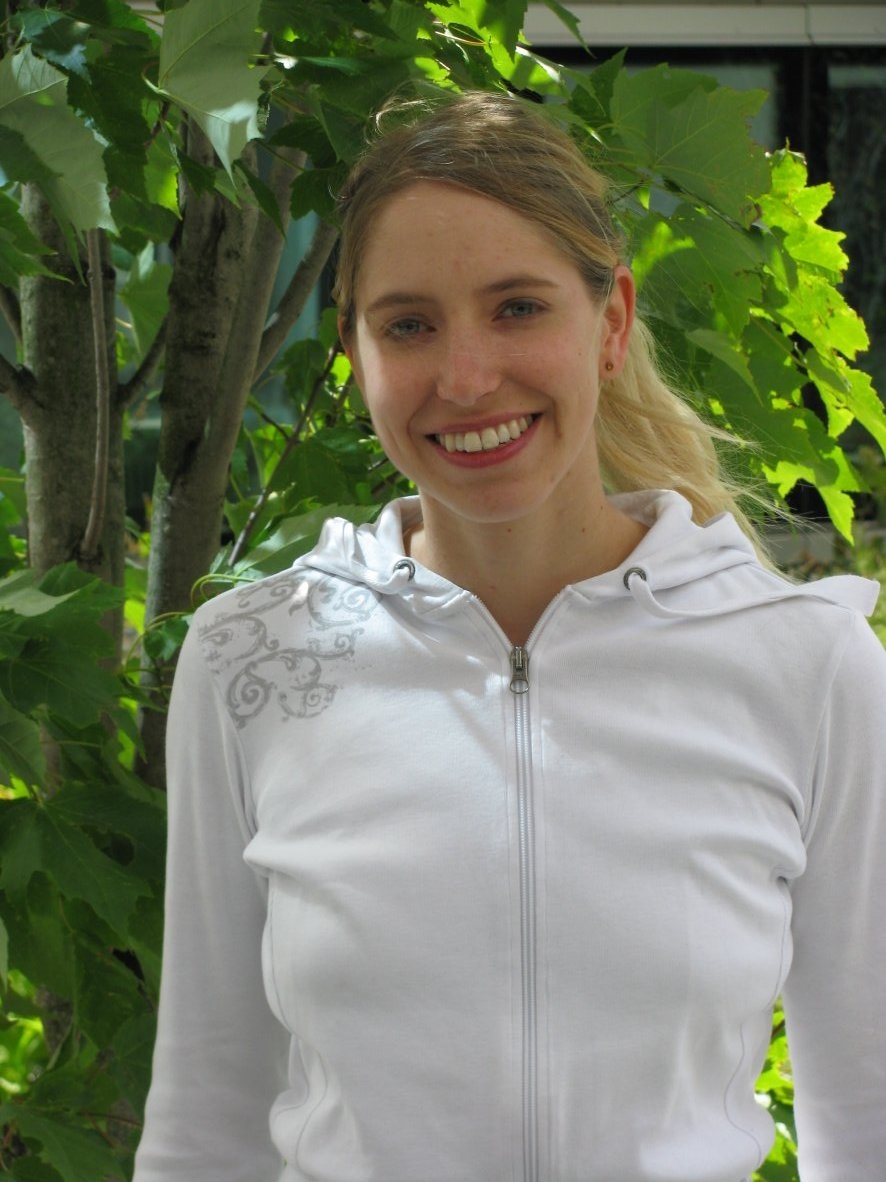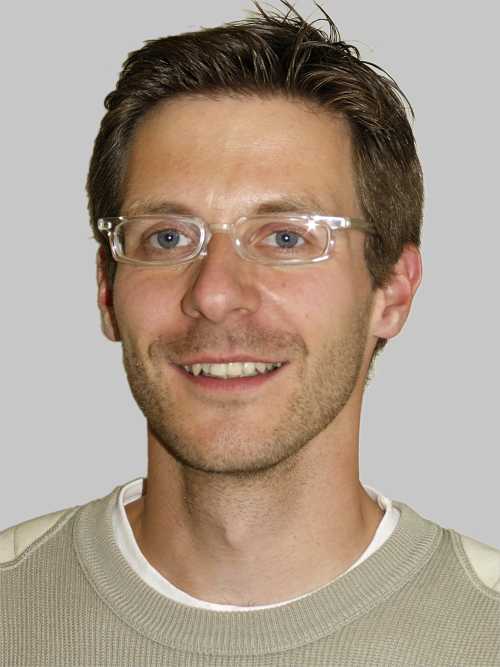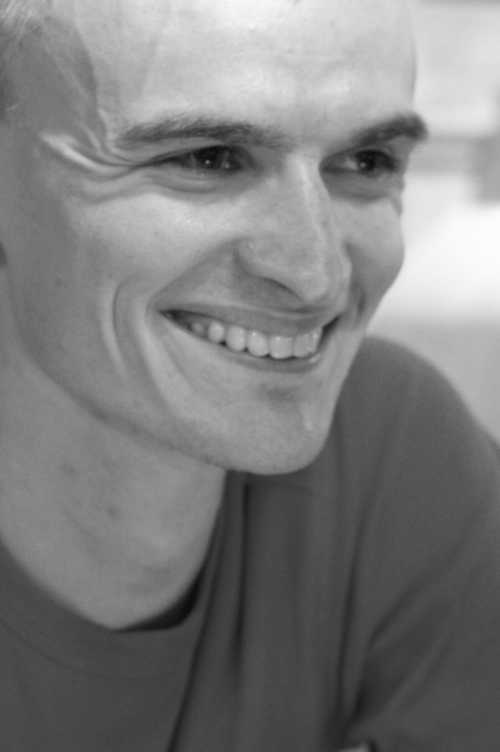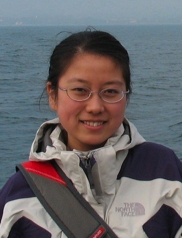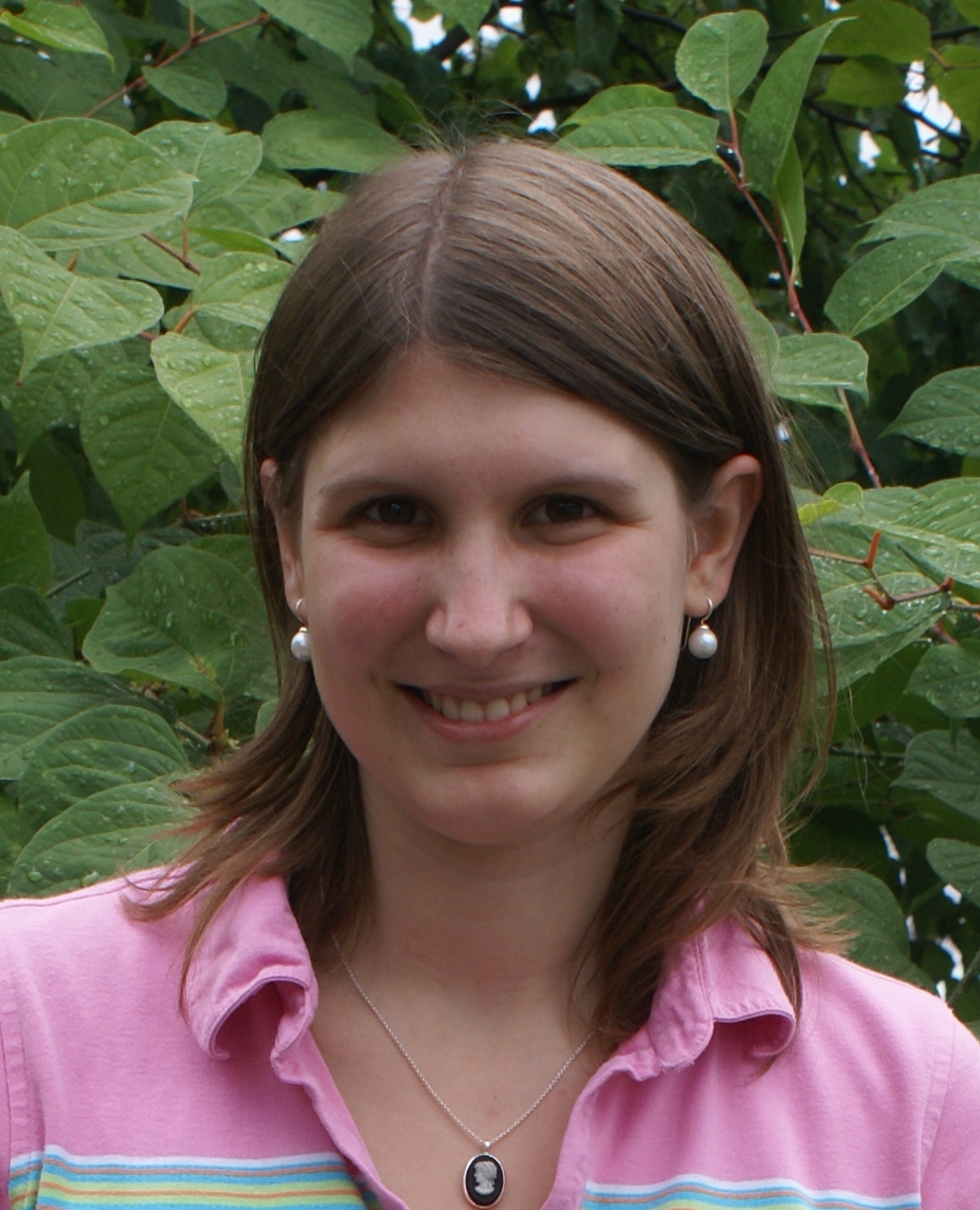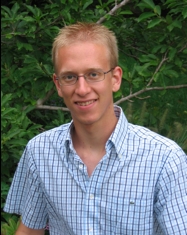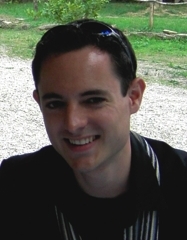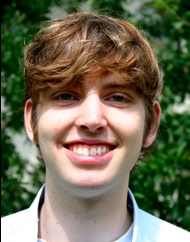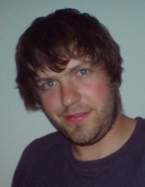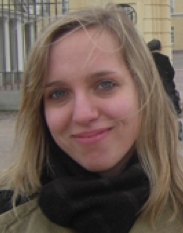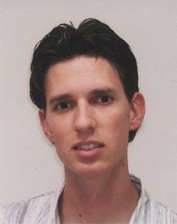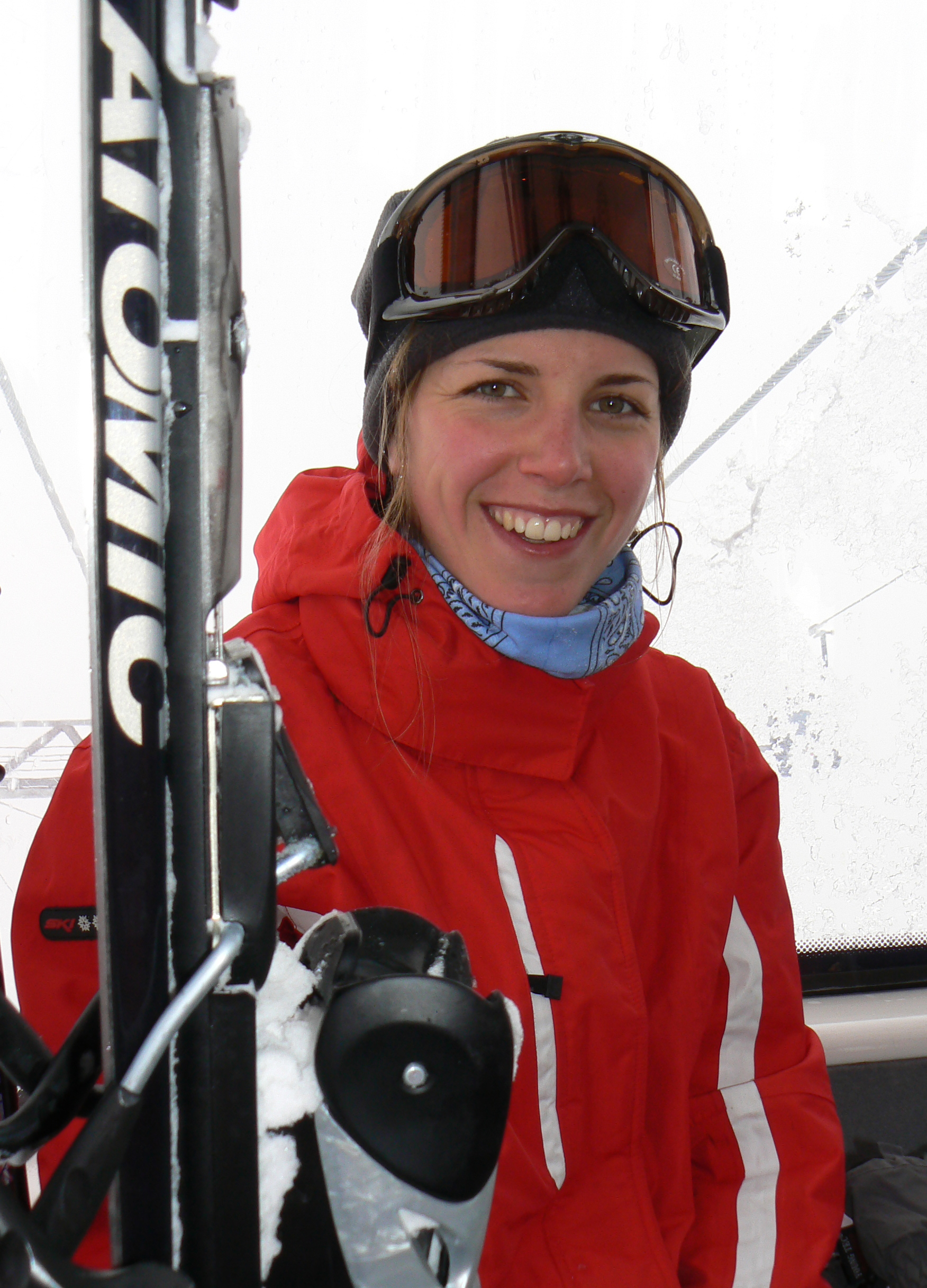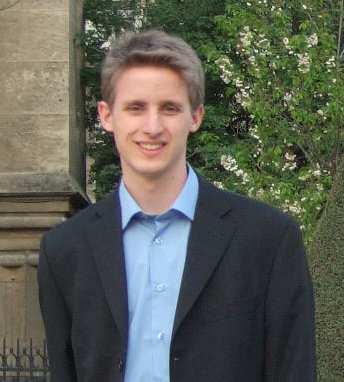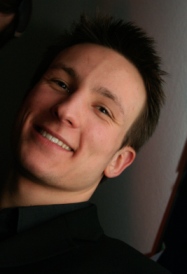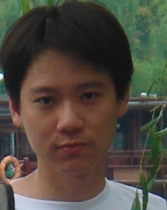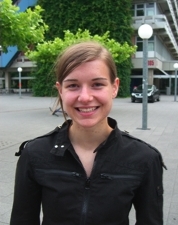Team:Heidelberg/Team Members
From 2008.igem.org
(→Dominik Niopek) |
(→Kathrin Nußbaum) |
||
| Line 229: | Line 229: | ||
Kathrin is fascinated by the possibilities synthetic biology offers, especially in simplifying the work of scientist by an exchange of standardized biological parts and devices. | Kathrin is fascinated by the possibilities synthetic biology offers, especially in simplifying the work of scientist by an exchange of standardized biological parts and devices. | ||
She is looking forward to participate in the development and organization of the project this summer working with an interdisciplinary team. | She is looking forward to participate in the development and organization of the project this summer working with an interdisciplinary team. | ||
| - | [[Team:Heidelberg/Team#Team Heidelberg- Members|back]] | + | [[Team:Heidelberg/Team#Team Heidelberg- Members|back]] |
| - | + | ||
| + | E-Mail: kathrin.nussbaum at gmx de | ||
| + | |} | ||
===Kolja Schleich=== | ===Kolja Schleich=== | ||
Revision as of 09:47, 3 September 2008

Advisors
Prof. Dr. Roland Eils
| Thanks to Professor Eils, since he will sponsor travel/participation stipends for all undergraduate students on the team to attend the final jamboree at MIT. He will also provide R&D facilities and a team budget. Professor Eils is head of the Departments of Theoretical Bioinformatics in the institutes Bioquant, IPMB, and DKFZ. Moreover, he is founding director of Bioquant and directs the German-wide Systems Biology in Cancer initiative of the Helmholtz foundation with a volume of 50 Mio. Euro. Together with Professor Wolfrum he directs the Viroquant initiative on modeling and simulation of virus entry. He has won numerous awards in the field of image analysis; in particular he has been awarded the Biofuture price by the BMBF for innovations allowing the graphical reconstruction of the eukaryotic mitosis process from 4D microscopy images. In 2004, he was one of the organizers of the International Conference on Systems Biology, which was hosted by him here in Heidelberg. His publication with Martin Bentele, Inna Lavrik and Professor Krammer on the computational determination of the CD95 threshold in The Journal of Cell Biology in 2004 gave birth to the current Applied Systems Biology group, which is now largely involved in the research of cancer signaling. In 2004, Professor Eils, Ivayla Vacheva, and Professor Bock have won the Microsoft Research Award for the development of Optimal Experiment Design tools. His new engagement in the up-coming field of synthetic biology underlines the need for tight interdisciplinary work between experimentalists and theoreticians. back |
Dr. Victor Sourjik
| Victor Sourjik has studied Molecular Biology and Physics at University of Regensburg. He has done his PhD at the Institute of Physics and Technology in Moskow and in the lab of Professor R. Schmitt at University of Regensberg. He then went as post-doctoral scientist for five years to Professor H. Berg at Harvard University in Cambridge, USA, and became group leader in 2003 at the Center for Molecular Biology in Heidelberg. Victor investigates bacterial chemotaxis as example for the molecular perception of environmental signals and their transduction within cells. He combines quantitative data with computational modeling to obtain a detailed understanding of the signaling mechanisms in complex systems. In his Nature publication in 2005 he could use criteria for systems robustness in order to predict a correct topology for the Che signal transduction network. This approach has become a paradigm for the utilization of systems biology to pursue biological research. For his successful research on prokaryotic signal transduction Victor has won the Chica and Heinz Schaller award in 2007. We are sure that his broad experience in the field of bacterial chemotaxis will be a key asset to the strength of our team. back |
Jens Keienburg
| Jens is a Ph. D. student in the Applied Systems Biology group of Professor Eils at Bioquant. With Hauke, Victor and Professor Eils he initiated the iGEM team for Heidelberg and will coordinate the project over the summer. He has studied Molecular Biotechnology at University of Heidelberg with a focus on Systems Biology. As part of his studies he visited in 2005/06 for seven months the Systems Biology Group of Professor Palsson at UCSD in California, where he tested novel FBA methods to predict the metabolic state of bacteria. For his Master thesis he has worked in the Applied Systems Biology group of Professor Eils on a negative feedback loop to analyze the dynamics of transient states in prokaryotic gene expression. Though this project is on-going, his main interest is the application of Optimal Experimental Design tools for the parameter estimation of large ODE sets to model complex biological systems. As mentor with experience in theoretical and experimental tracks, he will encourage students for research across conventional discipline boundaries. back |
Dr. Hauke Busch
| Hauke is group leader within the Applied Systems Biology group of Professor Eils at Bioquant. Due to his firm background in systems theory he is an enthusiastic fan of synthetic biology and iGEM; it is for his persevering encouragements that an iGEM team for Heidelberg could be initiated. Hauke has done his Ph. D. in non-linear dynamics at the Technical University of Darmstadt. At the DKFZ in Heidelberg he has been involved in the start-up of today's Applied Systems Biology group. He currently works on several interdisciplinary projects at Bioquant and DKFZ. His findings on the orchestration of multiple signaling pathways controlling keratinocyte migration have recently been accepted by Molecular Systems Biology. Inspired by his background in stochastic modeling he furthermore investigates transient gene expression states that are affected by random reaction kinetics due to low particle numbers, in particular in prokaryotes. He is also involved in the development of optimal experiment design tools for the parameter estimation in large ODE systems. With Jens and Victor he will coordinate and support the team during the summer. His experience with experimental biologists will help the team to find exciting connections between wet-lab biology and systems biology.
Links: http://www.dkfz.de/tbi/people/homepages/busch/ back |
Dr. Barbara DiVentura
| Computer engineer by university training (carried out in the University of Rome “La Sapienza”), Barbara has done her Ph.D. in molecular biology in the laboratory of Luis Serrano, at the EMBL in Heidelberg. Her Ph.D. project consisted in constructing a synthetic human p53 network in the yeast Saccharomyces cerevisiae. The absence in yeast of the vast majority of p53 regulators allowed investigating its functional, post-translational modifications by Mdm2. She found that Mdm2 is necessary in yeast to recruit p53 to nuclear bodies reminiscent of human PML bodies, suggesting a possible involvement of Mdm2 in the recruitment of p53 to PML bodies in human cells. This reductionist yeast model paves the way to dissecting the p53 network to understand the core mechanisms of its regulation. On the theoretical side Barbara has worked on modeling biochemical networks in a spatial stochastic framework. She believes in the power of synthetic biology to teach important lessons about real biological systems as well as in the winning combination of theory and experiments to understand the molecular mechanisms driving biological processes. Barbara is very excited at the idea of mentoring the young, motivated and enthusiastic students of the Heidelberg iGEM 2008 team! back |
Dr. Jan Eufinger
| Jan has done his Ph.D. in Biology here in Heidelberg and is now scientific project coordinator of the Systems Biology in Cancer program of the Helmholtz alliance. Jan was from the beginning excited by the idea to start an iGEM team for Heidelberg. He will support the organization of our team and train the students in the lab. back |
Phillip Hundeshagen
| Phillip is currently a Ph.D. student in the Applied Systems Biology Group of Professor Eils at Bioquant and DKFZ. During his Ph.D. thesis he is working on the crosstalk between apoptosis and autophagy. He is mainly interested in the development and application of novel high-throughput/high-content approaches to study cellular decisions on a comprehensive level.
He joined the iGEM –team as an advisor/mentor and is very happy to contribute to this exciting and promising project. back |
Dr. David Kentner
| David has just obtained his Ph.D. degree in Victor???s group at ZMBH in Heidelberg. His results on the spatial organization of the bacterial chemotaxis system were published early in his Ph.D. career in 2006 in Current Opinion in Microbiology. In this work he could show that clusters of chemotaxis receptors localize specifically inside the cell, probably to ensure their proper distribution during cell division. We are glad to have a scientist from the intersection of experimental systems biology on our team. back |
Michaela Reichenzeller
Yara Reis
| Yara comes from Portugal where she studied Biochemistry. During her Master thesis in Lisbon, she worked with Apicomplexa parasites (like Toxoplasma and Plamodium).Using Atomic Force Microscopy (AFM) and other microscope techniques, she was able to see very interesting cytoskeleton features of the parasite Besnoitia besnoiti during cell invasion. While presenting her published work in Switzerland, she was invited to come to Heidelberg for 4months. She found the city and University atmosphere interesting, fun and challenging at the same time, so she decided to stay.
Today, she is at her 1st year of her PhD in Systems Biology applied to Programmed Cell death in cancer cells at Roland Eils group. She is working experimentally on the pro-apoptotic BH3-only proteins and their relation with mitochondria dysfunction and clearance by autophagy. She is very enthusiastic with joining the iGEM team as it will provide the chance of interdisciplinary group work in a Synthetic Biology project. back |
Daniela Richter
| Daniela Richter is a PhD student from DKFZ working in the group of Theoretical Bioinformatics at Bioquant. She studied Molecular Life Science at the University of Erlangen-Nuremberg acquiering her master degree in the field of Theoretical Chemistry in 2006, working on a semiempirical, non-iterative method for the calculation of density matrices. Before coming to Heidelberg she spend half a year working in the Research and Development Department of the Qiagen company. In her PhD, Daniela is interested in the role of endosomal trafficking in cellular life- and death-decisions. Daniela contributes to the iGem-team as a lab supervisor as well as assisting with graphic design and presentation issues. back |
Hannah Schmidt-Glenewinkel
Erik Sommer
| Erik is a PhD student in the group of Victor at the ZMBH. He studied Biology at the universities of Mainz and Heidelberg and in 2007 he finished his Diploma thesis on the Min-System in E. coli. His PhD thesis deals with research on the two-component signal transduction pathways in E. coli and includes studies on sensing, amplification and integration of various environmental signals. He investigates protein interactions in vivo using different fluorescence microscopy techniques. He joined the iGEM –team as an advisor and is happy to contribute to this exciting project in Synthetic biology. back |
Nikita Vladimirov
| Nikita is a Ph.D. student of the Bioquant Graduate Program. In close collaboration with Victor Sourjik he is working on multiscale modeling of chemotaxis, and designs new models of chemotactic sensing and swimming of E. coli. As a part of his Ph.D. project, he simulates heterogenous bacterial populations which interact by secreting and responding to different chemical substances. Such models allow prediction of a spatially inhomogenous killer-prey system under various experimental conditions. As an advisor with experience in computational biology and mathematics, he will help the students to simulate the system in silico. back |
Undergratuates
Philipp Bayer
Yin Cai
| Yin Cai is a Bachelor student in the 4th semester in Molecular Cell Biology at the Ruprecht-Karls University of Heidelberg. She grew up in China and started her Bachelor course in October 2006, after finishing high school in Shanghai. Earlier in this year she has done a research-oriented rotation in the group of Professor B.Schwappach at the University of Manchester in UK for seven weeks, where she tested the function of the chlorid/proton antiporter Gef1 in the yeast cell. Currently, her main interest is the application of mathematical analysis such as modelling, computation, visualization for researchs in Molecular and Cell Biology. As student with basic knowledge in theoretical and experimental tracks, she will work with the team-colleagues on the project together. back |
Adjana Eils
| Adjana just finished her highschool degree and will start her maths studies this fall. Parallel to her highschool degree she has accomplished a three years job training as chemical-technical assistant, where she has gained significant expertise in experimental work. She is delighted to participate in this mulit-disciplinary iGem-team and is looking forward to an exciting work at the interface between biology, mathematics and chemistry. back |
Maximilian Hoerner
| Maximilian is a Bachelor student of Molecular Biotechnology in the 6th semester with biophysical chemistry as his main subject. After finishing his Bachelor studies this summer, he will continue with the Master program of Molecular Biotechnology in Heidelberg. Before starting his work in the Heidelberg iGEM team he completed an internship in the group of Prof. Spatz at the Institute of Physical Chemistry where he studied differential splice variants of fibronectin mRNA. Because he is interested in the application of mathematical, informatical and physical methods to biological problems, he is looking forward to the work in the Heidelberg iGEM team. back |
Pascal Kraemer
| Pascal is a student of Molecular Biotechnology in the 6th semester at the University of Heidelberg with drug development as main subject. He will finish with his Bachelor degree this summer before he continues with his master studies of Molecular Biotechnology in Heidelberg. Within his last internship this spring in the group of Dr. Beckhove at the German Cancer Research Center (DKFZ) he concentrated on the analysis of T cell tumor infiltration after irradiation combined with a transgenetic T cell transfer in pancreatic carcinoma. Because Pascal is fascinated by the upcoming field of synthetic biology he is looking forward to work within an interdisciplinary team on this fast developing field and to gain a lot of new experiences by this. back |
Stephen Kraemer
| Stephen is a student of Molecular Biotechnology looking forward to his third semester at the University of Heidelberg. He is fascinated by the idea of the Registry and is glad to take part in the scientific community created by the iGEM competition.back |
Andreas Kuehne
| Andreas is a bachelor student of Molecular Biotechnology in the 6th semester and will finish his bachelor studies this summer. Afterwards he will continue with his master studies in Molecular Biotechnology at the University of Heidelberg. During his bachelor studies he has done an internship at the group of Professor Eils in the BioQuant Heidelberg, in which he worked on the simulation of ??Ku protein diffusion in eucaryotes. This internship led to the decision that he will concentrate on bioinformatics and especially on systems biology in his master studies, because he is interested in the combination of theoretical simulations of cellular processes and laboratory work. back |
Christian Moritz
|
Christian is a bachelor student of Molecular Biotechnology in the 6th semester. He gained lab experience while working as a lab student for ThermoFisher Scientific in Ulm for more than three years and Dharmacon in Lafayette, CO last summer. Befor starting at iGEM he wrote his bachelor???s thesis about the role of Pin1 in DNA damage-induced HIPK2 activation in the lab of Thomas Hofmann at the German Cancer Research Center. After finishing his bachelor studies he will continue to study Molecular Biotechnology in the master???s program in Heidelberg with drug development as ongoing main subject. He is looking forward to working in this interdispciplinary team and learning about the field of synthetic biology. back E-Mail: christian.moritz1 at googlemail.com |
Maria Muench
| Maria studies Mathematics at the University of Heidelberg in the 4th semester. Because the study is very theoretical and less application-oriented she would like to become acquainted with the domain of mathematical modeling of biological processes. Her participation in the iGEM-Team Heidelberg is due to her interest in natural sciences. She is highly motivated and curious about the project and the team work following the next weeks and she is glad to have the opportunity to extend her knowledge. back |
Dominik Niopek
| Dominik is a Bachelor student of Molecular Biotechnology at the University of Heidelberg since 2006. Beside his studies he gained experience in image processing from his work as an assistant scientist at the Max-Planck-Institute for medical research in the research unit of Professor Denk. He also got basic knowledge in cell culture and biotechnological production from internships at the ORPEGEN Pharma Heidelberg. Dominik is now in the 4th semester of his studies and his main scientific interests are neurobiology and cellular networks. As a member of the iGEM Team Heidelberg, he will try to contribute his experience and knowledge to the success of the project. back
E-Mail: d.niopek at gmx.de |
Kathrin Nußbaum
| At present, Kathrin Nußbaum is a student of the Bachelor’s Program Molecular Biotechnology at the University of Heidelberg. She spend the last 5 month in Montpellier, France, where she completed an internship working on a project with the aim to identify the role of the protein SFRP (Secreted frizzled related protein) and to characterize its expression in the muscle homeostasis in the nematode C. elegans.
Kathrin is fascinated by the possibilities synthetic biology offers, especially in simplifying the work of scientist by an exchange of standardized biological parts and devices. She is looking forward to participate in the development and organization of the project this summer working with an interdisciplinary team. back E-Mail: kathrin.nussbaum at gmx de |
Kolja Schleich
| Kolja studies Molecular Biotechnology with a majors in bioinformatics. After finishing his bachelor studies this summer he will continue in the master programme in Heidelberg. He is especially interested in cancer biology and mechanisms of signalling cascades. During his studies he has done an internship in the Biomedical Computer Vision Group of Professor Karl Rohr in the Bioquant. There he worked on fluorescence images to detect the ALT mechanism in soft-tissue sarcomas by detecting Colocalisation of PML bodies and telomeric DNA. Further he has good skills in Linux and has an assistant job as systems administrator at the german cancer research center. Since he is interested in combining experimental work with theoretical modelling he is looking forward working in this interdisciplinary IGEM team. |
Markus Stahlberg
| Markus is a bachelor student of Molecular Biotechnology at the University of Heidelberg and has just finished the second semester. Beside his study he is also employed as a research assistant at the IZN (interdiciplinary center for neuroscienes), where he gathers first experiences in dealing with research.
He is really happy to be part of Heidelberg's first iGEM Team and he is confident that they will have a great time. back |
Anna Stoeckl
Chenchen Zhu
| Chenchen is a bachelor student in Molecular Biotechnology. He had studied Informatics in China for one year. After half-year learning of German in Berlin, he moved to Heidelberg and furthered his study in Molecular Biotechnology. He is now in the 4th semester. His main interest is in microbiology, especially in the research of Hepatitis B Virus, since it causes one of the biggest health problems in China. As a member of the iGEM team Heidelberg, he will try to integrate his theoretical and experimental skills both in Biology and Informatics in the next few months. back |
Marika Ziesack
| Marika Ziesack studies Molecular Biotechnology in the second semester at the University of Heidelberg. She is very interested in interdisciplinary work and looks forward to learn much about molecular biology and informatics by working on the synthetic biology project of the Heidelberg iGEM-team. back |
Phips the Phage
| My name is Phage, Phips the Phage... |
 "
"

